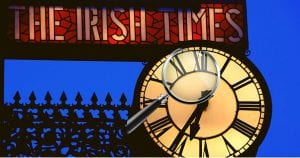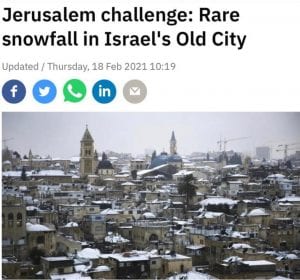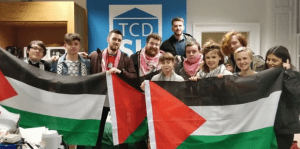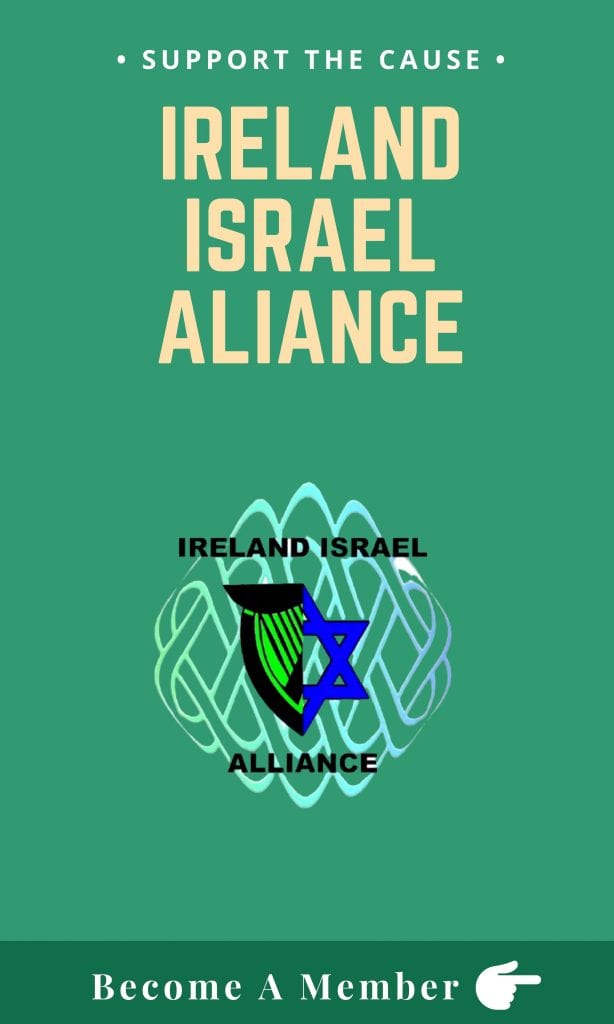After a break in 2020 due to Covid-19, Tel Aviv’s iconic Pride Parade is scheduled for June 25. In June 2019, over 250,000 people marched, the largest Pride parade in the Middle East. Most countries in the region do not tolerate an open celebration of LBGT life, with few Middle Eastern countries according rights to gay, lesbian, bisexual or transgender citizens. Small Pride parades have taken place in Beirut since 2017, while in Turkey the last legal Istanbul Pride parade in 2014 attracted crowds of up to 100,000. The parade has been banned since then and attempts to hold a parade have been met with tear gas and water cannon.
The legal situation for Palestinians varies by location. Under civil law, consensual same-sex relationships are not criminalized in the West Bank; however in Gaza consensual same-sex sexual activity is a criminal offence punishable by up to 10 years’ imprisonment. Under Islamic law, homosexual behavior is punishable by different predetermined penalties, including flogging and hanging. In 2016, Hamas executed former commander Mahmoud Ishtiwi for alleged embezzlement and “crimes against morality”, i.e. homosexuality. A 2013 survey by Pew Research found that just 4% of Palestinians considered homosexuality acceptable – down from 9% in the previous 2007 survey.
The main organisation that aims to support LGBTQ+ Palestinians is known as Al Qaws (Arabic for The Rainbow), whose full name is alQaws for Sexual & Gender Diversity in Palestinian Society. Their current director is Arab Israeli Haneen Sader, who lives in Haifa and has worked for Apple. Likewise, Aswat (Arabic for Voices), the Palestinian Feminist Center for Gender and Sexual Freedoms is based in Haifa.
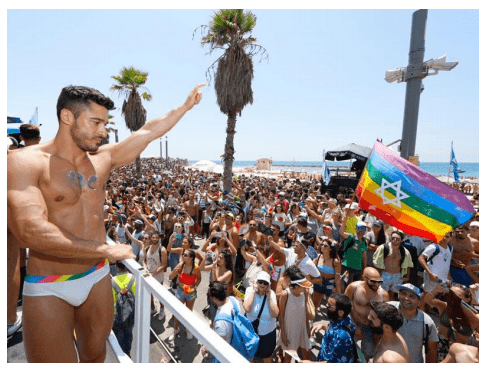

In 2019 the Palestinian Authority briefly outlawed Al Qaws activities, claiming the group goes against “traditional Palestinian values” and called on citizens to report “suspicious figures attempting to provoke and harm the Palestinian social fabric.” It also accused the group of being “foreign agents.”
In Israel, homosexual acts were decriminalised in 1988. Israel does not allow same-sex marriage, or any non-religious marriage, to take place in Israel, but marriages performed overseas can be registered in Israel and are legally recognised. LGBTQ couples can adopt children, and discrimination on the grounds of sexuality or gender-based identity is illegal. Homosexuality is not an impediment to military service, and Israel’s new cabinet just selected this week includes two openly gay Ministers, Nitzan Horowitz (Minister of Health) & Idan Roll (Deputy Foreign Minister).
The accusation of “pink-washing” is the claim that Israel has conceded these rights in order to boast about the country’s civil right records and thereby distract observers from its alleged crimes against Palestinians. This is a gross insult to the years of hard work by gay rights activists in Israel, who are still struggling for equal rights.
Homosexuality remains a taboo in religious Jewish circles, and legal progress is still difficult. For example, in 2018 Israel passed a surrogacy law that denies gay men the right to become parents via surrogacy, even as it gives the green light to lesbian intended parents and single women. A promised bill to legalise surrogacy for male gay couples has not yet materialised. The current Knesset includes a group of newly elected members of the Noam party which opposes the recognition of gay and lesbian couples with children as families. The Arab party Ra’am, part of the new coalition government, last year condemned a law banning conversion therapy, saying the law “spread obscenity and homosexuality” and was a “crime against religion and society”.
Meanwhile international LGBTQ activists use slogans like “Gay for Gaza”, and “No Pride in Occupation”, pretending that gay rights in the Palestinian controlled territories would magically materialise if Israel would just “end the occupation”, and that the oppression of LGBTQ people in those territories and the wider Islamic world is a function of colonialism rather than a deeply ingrained, cultural and religiously based attitude.
The BDS Movement and the Ireland Palestine Solidarity Campaign are just two organisations that accuse Israel of “pink washing” as part of their efforts to de-legitimise Israel. In addition to insulting Israeli gay rights activists, the allegation of pink washing draws on the old antisemitic trope of the duplicitous Jew whose words and deeds are never to be judged on their own merits but to be perpetually suspect as a cover up for some unsavoury agenda. It is old-fashioned Jew-hatred disguised in a modern, more politically correct form.
Finally, dismissing Israel’s gay rights as pink washing does less than nothing for LGBTQ+ Palestinians, many of whom have found refuge in Israel, and who might otherwise be tortured, imprisoned or even executed because of their sexuality. The existence of a safe haven for them should be celebrated, not denigrated.
By Editorial

